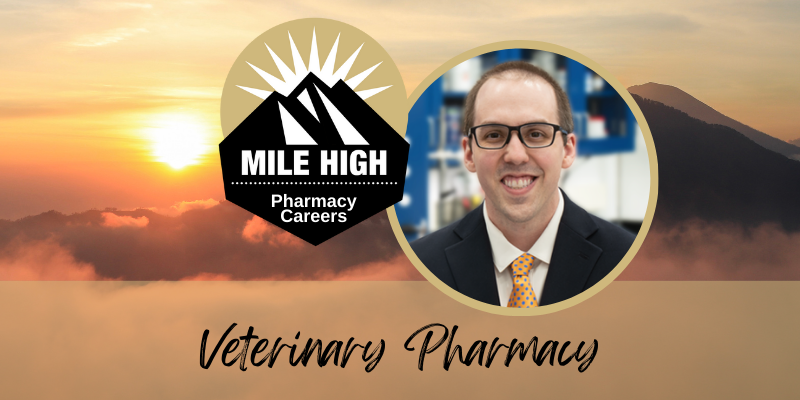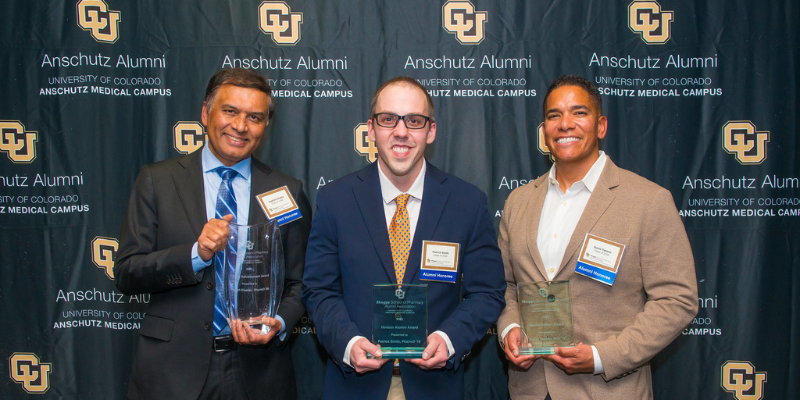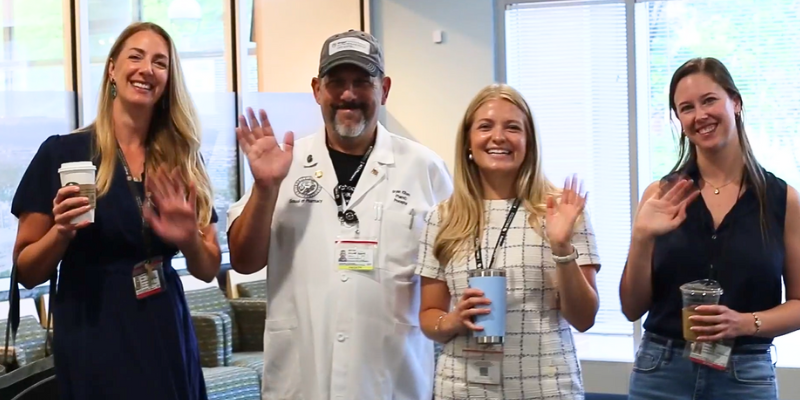What are you currently doing as a pharmacy professional and how did you progress to where you are today?
.png?width=300&name=Headshots%20300%20x%20400%20(3).png)
| Julia Slejko, PhD '12 (photo courtesy of University of Maryland School of Pharmacy) |
Currently, I'm an associate professor of pharmaceutical health services research at the University of Maryland School of Pharmacy in Baltimore, Maryland. After I graduated in 2012, I progressed to a postdoctoral position at the University of Washington School of Pharmacy and was there for about two years. Following that, I started my faculty position in 2014 and was just recently promoted to associate professor last year.
I was in the Pharmaceuticals Outcomes Research (CePOR) program and my focus was in pharmacoeconomics. I wanted to do a postdoc because, at the time, I wasn't sure if I wanted to pursue industry or academics. I thought a postdoc would give me a little bit more perspective on what some different work environments might be like. Because the postdoc I got in was a collaboration between the University of Washington and Pfizer, I worked in the industry setting as part of my postdoc and I got some academic experience as well. So, I could see what both settings were like. After that time, I decided academia was for me.
What is different about the person you are today compared to the person you were while in school?
When you're a student, it seems like there's a lot of stress with classes, getting good grades and fulfilling all your responsibilities as a graduate student, but it's also a time when you have the ability to be creative because everything is in front of you, and you can follow any path you want. At the same time as a student, you have a narrow focus. On the one hand, I had a lot of ideas and I felt creative, but I didn't have the experience and breadth of connections to really piece it all together at that time. So, what I would say is different now is just having a much broader view on what pharmacoeconomics or health economics is all about. That comes with my own experience, but also with having a broader view of academics too, because now in my role as a professor, I see everything that goes into a training program. Seeing that in action really gives me a much different perspective on what goes on in a school of pharmacy, the PharmD and PhD programs.
While I was in school, my world was getting my PhD and I had a lot of ideas about my research, but probably didn't have a good sense of how what I did would interact with practicing pharmacists or even people working in other departments in the School of Pharmacy. Now my world is the whole school of pharmacy where I work. Not only what happens in our PhD program but how I interact with our PharmD students and how they can play a role in my research program as well. So, it’s having a much broader view, not only on what I'm doing in research, but also in the academic environment itself.
What has been a defining moment for you as a seasoned professional?
A couple of defining moments are about different connections I've made. The choice to pursue a postdoc was a defining moment. That was a connection that was made by my advisor, Dr. Jon Campbell. He helped me make that decision to pursue a postdoc. That was defining because it gave me an eye for what it would be like to work in an academic environment. It also opened the world to other connections at a completely different institution which could help me connect with places to work after my postdoc.
Another defining moment would be in professional organizations. I'm very involved with the International Society for Pharmacoeconomics and Outcomes Research (ISPOR), which is our health economics society, and this has been defining for my career as well. Having different roles in that professional organization brought me more connections that have resulted in research collaborations and other strategic connections.
ISPOR has been around for at least 20 years and its members are the leaders in what we do in health economics, specifically in pharmaceutical economic decision making. I was introduced to ISPOR while in the CePOR program which encouraged the idea of presenting my research at a conference and getting involved in the student groups. That led to having a much bigger role in the organization because it is an international organization. My role in the society has increased, and it's been rewarding for me professionally. It’s also given me a lot of satisfaction in terms of meeting other researchers and making connections.
What inspired you to attend the CU Pharmacy program and what was your experience while in the program?
I completed my undergraduate at CU Boulder and so for me at the time I had not considered leaving Colorado. I loved living there. I grew up there. CU has a great reputation. Also at that time in the mid 2000s, the pharmacy profession had a lot of attention. That's what made me think about the School of Pharmacy rather than looking at the science programs on campus at CU Boulder. Pharmacy was in the spotlight, and I was interested in why the pharmacy profession and all the sciences related to it were so important.
It wasn't until a couple of years of understanding more about the program offerings at the school that I thought the CePOR program seemed like a great fit for me. I knew there were other programs out there but having the familiarity with the CU system and having already been on campus for the Pharmaceutical Science classes, I had connected with some of the people at the school that made me want to remain there. What’s exciting is that I stay connected with CePOR and have worked with Dr. Brett McQueen on several projects.
It's been 10 years since I've graduated and once again pharmacy is in a major spotlight for some different reasons with vaccines around the pandemic and administering those vaccines and all the issues around the effectiveness and safety studies that go into vaccine development. Not only that, but there are new fields around pharmacy that perhaps we hadn't been thinking about 10 years ago like medical cannabis, which is another emerging field and another reason why the spotlight is on pharmacy. I can see why CU and the School of Pharmacy is going to be a major contributor to the field of pharmacy for many decades to come.
What is your proudest moment and your favorite thing about working in the pharmacy profession?
My proudest moments have been in my career in academia. I've had two PhD graduates where I've been their dissertatoin advisor. Graduating those two students has been greatly rewarding. Working with them over four or five years to build their dissertation topic and watching them have success in their analysis and writing up their results; putting together the presentation of their dissertation and being there at their defense made for a proud moment to see them defend their dissertation. Even though they did all the work, having that responsibility for helping another scientist get their PhD has been a proud moment for me.
What sage advice would you pass on to current and future students that was helpful for you in preparing for the job market?
One thing is to get out there and talk to people. That's what success in our field is all about. It can be important to make different connections and making connections does not have to be daunting or as hard as it may seem. It's important to remember to reach out to alumni who are doing things that you admire or things that you're interested in. Additionally, in professional organizations, if you're at a conference, don't be shy about reaching out to a speaker at a conference or an author on a paper that you're interested in. Get out there and talk to people or ask your advisor to make a connection for you. Making connections is really a key part of understanding what opportunities are out there and obtaining them.
For more information on the Center for Pharmaceutical Outcomes Research (CePOR) program, visit the following website: https://pharmacy.cuanschutz.edu/academics/phd-programs/pharmaceutical-outcomes-research.

-1.png)

.png?width=300&name=Headshots%20300%20x%20400%20(3).png)



